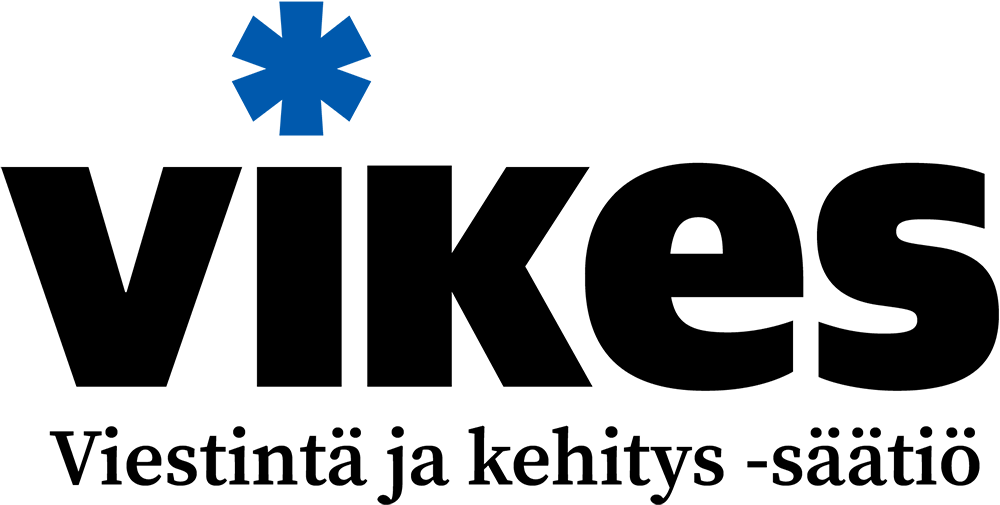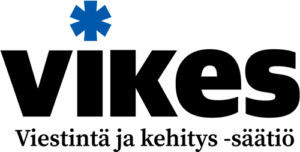![]()
Training for young journalists
Gender & Migration in Media
Young journalists living in Europe are called to connect, debate and learn over a 2-day online workshop in October.During the workshop we will focus on exploring migration reporting through different gender perspectives. We will analyze how gender is used and represented in different media content handling migration, how do we value sources based on gender and discuss the opportunities and obstacles for creating more balanced and diverse stories.
We will also focus on safety and discuss how gender affects our work as journalist, when we are reporting about migration, but also from the point of view of protecting our sources.
The main approach will be facilitated peer-learning combined with short expert interviews and keynote speeches. In the end participants will be focusing on developing solutions to identified problems in Gender & Media Challenge.
Time:
- 22nd October 14-20 (EET, UTC +2)
- 23rd October 12.30-20 (EET, UTC +2)
Target group:
- Young journalists (20-30 years) primarily from Finland, Estonia, Poland, Czech Republic, Slovakia, and Germany, but also from other European countries. Journalists with migrant background are encouraged to apply.
Amount of participants:
- Max. 30
Registration:
- By filling the online application form by 13/10/2020. Please note that the priority is given to applicants who are able to commit and show motivation for active participation during this intensive 2-day workshop.
[nectar_btn size=”jumbo” open_new_tab=”true” button_style=”regular” button_color_2=”Accent-Color” icon_family=”none” text=”Register” url=”https://docs.google.com/forms/d/e/1FAIpQLSekYmcsT8kAxI_dD9AvFbQJ3-Nn6pHhCtokhUbjhokY2jy3bQ/viewform?usp=pp_url”]
Training goals
- Providing young journalists insight and tools to gender sensitive reporting on migration. After the training the participants will be able to identify different gender-specific identities given to migrants by the media, and to self-critically estimate their own work.
- Providing young journalists ideas for new ankles and sources for reporting issues related to gender and migration. After the training the participants will have the capacity to produce more diverse stories.
- Providing young journalists necessary safety and risk management skills. After the training the participants are able to identify and manage gender-specific risks, have the basic skills for reporting from risky environments and topics, and understand their role in protecting the sources.
- Producing concrete solutions to problems related to gender and migration which are identified during the workshop. After the training the participants will have solutions they will be able to implement in their own work.
Programme
Please note that the right to make changes to programme is reserved. All selected participants will receive the final programme, training materials and instructions before the workshop.
Day 1: Gender in Migration Reporting
13:45 Participants may start joining the event
14:00 Welcome and introduction
14:30 Setting the ground to gender and migration in media
14:45 Gender-specific roles and representation of migrants in media
- Keynote by post-doctoral researcher Reeta Pöyhtäri, University of Jyväskylä
BREAK
15:30 Practical assignment
- What is implicit bias and how does it affect journalism? Self-assessment and group discussion for identifying gender-specific and discriminative stereotypes, identities and roles−the biases we all have.
17:15 Wrap-up and summarizing identified challenges/problems
BREAK
18:15 Expert interview and discussion
- Interview with activist Itohan Okundaye on reporting gender-sensitive and controversial issues, using human trafficking as an example.
18.45 Better migration stories: How to find alternative topics and sources?
- Video, group assignment and discussion with the co-founder Nina Gheddar from Guiti News (France)
19.15 Wrap-up and summarizing identified challenges/problems
20.00 Closing the day one
Day 2: Gender and Safety in Journalism, Gender & Media Challenge
12:15 Participants may start joining the event
12:30 Expert interview and discussion
- Interview with freelance journalist Seblewongel Habtamu focusing on her experiences in Ethiopia and in Finland
12:55-13:05 Voting to select which problems will be solved in Gender & Media Challenge
BREAK
13:20 Gender Equality and Social Inclusion (GESI) and journalism
- Psychosocial Trainer Cosette Maalouf, member of IREX SAFE Team will present a holistic approach to risk assessment, gender-sensitive approach to safety and protection of sources.
14:30 Wrap-up and identifying actors & phenomena
BREAK
15:45 Time for solutions: Gender & Media Challenge
- Helsinki Think Company will facilitate an intensive challenge where teams will develop solutions to selected problems we have identified during the training sessions.
18:45 Pitching developed solutions
19:45 Training wrap-up and feedback
20:00 Closing the training
Registration
Application and registration form is open until 13th of October 2020 (midnight, Eastern European Time). All accepted participants will receive an email of their selection on the 13th of October. Please note that the priority is given to applicants who are able to commit and show motivation for active participation during this intensive 2-day workshop.[nectar_btn size=”jumbo” open_new_tab=”true” button_style=”regular” button_color_2=”Accent-Color” icon_family=”none” text=”Register” url=”https://docs.google.com/forms/d/e/1FAIpQLSekYmcsT8kAxI_dD9AvFbQJ3-Nn6pHhCtokhUbjhokY2jy3bQ/viewform?usp=pp_url”]The contents of this publication are the sole responsibility of the Finnish Foundation for Media and Development and do not necessarily reflect the opinion of the European Union.

